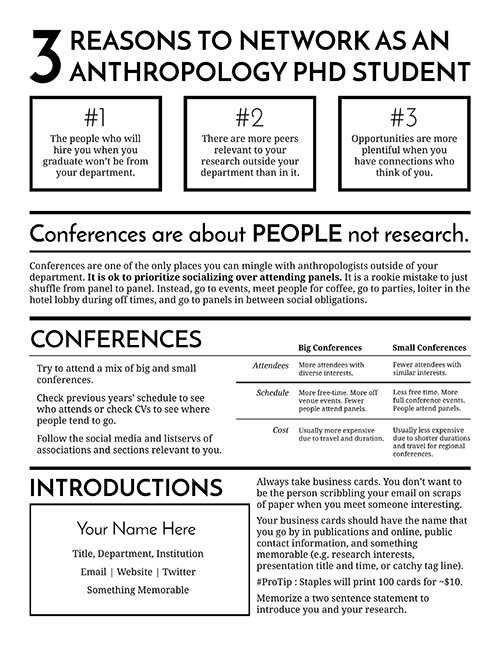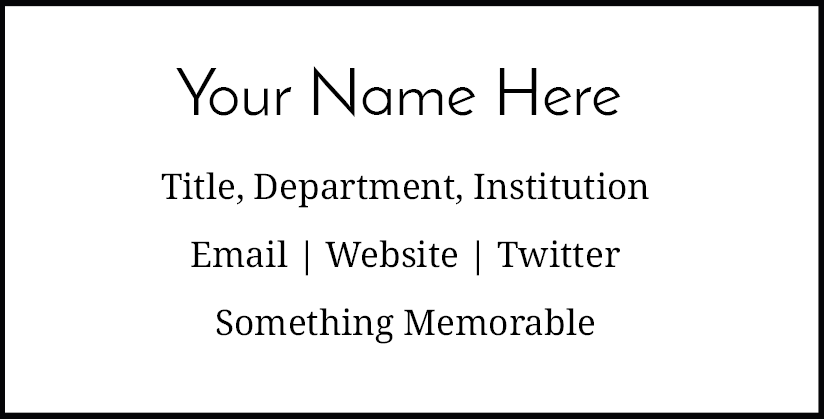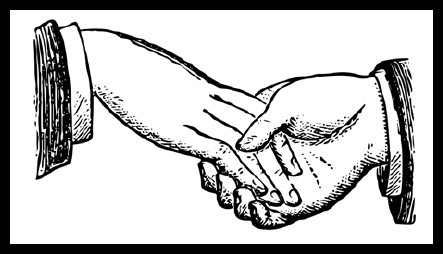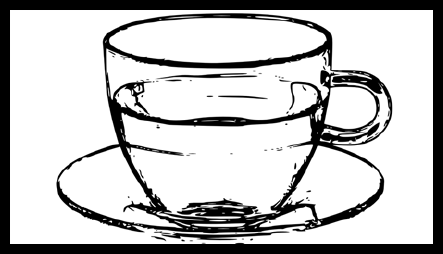Why You Should be Networking as a Graduate Student
Post archived from How to be an Anthropologist. Oct. 29, 2016.
I won't make it to the AAA meeting this year as I am focusing on securing money for dissertation research. #GrantWritingFTW! However, I wanted to share some lessons I have learned over my career that I think can make your AAA meeting (or any conference) more productive for you. Networking, that is meeting new people and making professional connections to people outside of one's department, has made my academic life easier and more productive. There are many opportunities that would not be available to me if it wasn't for that one time I met someone for coffee at a conference. So, if you are an anthropology graduate student and you are not actively networking, this is for you.
UPDATE: Another great thing about networking is that people actually read the things you write! My friend and fellow networker, Nick Seaver, points out that "'networking' may sound/feel forced, but it's really just getting to know people! The more you think of it as just normal socializing, the better off you'll be. (Of course, it can take work to look that laid back)." This is important to keep in mind! The advice and tips supplied below are not meant to make you a calculating-networking-machine. Rather, these are methods I have found to reduce my own anxiety about social encounters with colleagues, especially when meeting for the first time. Feeling prepared isn't about networking efficiency but about making you feel confident to go out and introduce yourself, get to know people, and join conversations.

Why You Should be Networking
- The people who will hire you when you graduate won’t be from your department.
- There are more peers relevant to your research outside your department than in it.
- Opportunities are more plentiful when you have connections who think of you.
Conferences are about PEOPLE not research.
Conferences are one of the only places you can mingle with anthropologists outside of your department. It is ok to prioritize socializing over attending panels. It is a rookie mistake to just shuffle from panel to panel. Instead, go to events, meet people for coffee, go to parties, loiter in the hotel lobby during off times, and go to panels in between social obligations.
Choosing Conferences
Try to attend a mix of big and small conferences.
| Quality | Big Conferences | Small Conferences |
|---|---|---|
| Attendees | More attendees with diverse interests | Fewer attendees with similar interests. |
| Schedule | More free-time. More off venue events. Fewer people attend panels | Less free time. More full conference events. People attend panels. |
| Cost | Usually more expensive due to travel and duration | Usually less expensive due to shorter durations and less travel for regional conferences. |
Check previous years’ schedule to see who attends or check CVs to see where people tend to go.
Follow the social media and listservs of associations and sections relevant to you. (e.g. AAA Sections or AAA Interest Groups)
Materials for Introductions
Business Cards

Always take business cards. You don’t want to be the person scribbling your email on scraps of paper when you meet someone interesting.
Your business cards should have the name that you go by in publications and online, public contact information, and something memorable (e.g. research interests, presentation title and time, or catchy tagline).
#ProTip : Staples will print 100 cards for ~$10.
The Who Are You Statement
Memorize a two sentence statement to introduce you and your research. The best way to ease anxiety about introducing yourself to new people is to know what you are going to say. You can always switch it up if you are feeling inspired. But, if your nerves take over, it is nice to have a nice prepared statement to fall back on. Your statement should be brief and to the point and sound natural (something you would say, not something you would write). Make sure you cover (1) Your name, (2) your institutional affiliation and position, (3) your advisor–if it is relevant, and (4) what your research interests are.
I like to carry a card in my purse with it written down for reference. I will peek at it before going into big parties or other events.
A Strategy for Meeting People
Doing preparation for networking before the conference can make a huge difference in your success and how confident you feel. If you have a plan and know something about people before you approach them, you will feel more confident and make a better impression. My strategy splits potential contacts into two groups: People to Shake Hands With and People to Have Coffee With.
Shaking Hands

Who
People too busy to have coffee with you or people who you want to know your name, but not have a long conversation with.
Preparations
Figure out what they look like. Make flashcards to memorize names and faces. This makes it easier to find them and introduce yourself. It also eliminates the awkwardness of asking “Are you [name here]?”
Find out where they will likely be. The easiest way is to use the program to find their presentations. For the AAA Meeting, you can also use CVs to find out if there are any open business meetings or events they may attend (e.g. Wenner-Gren recipients usually go to the Wenner-Gren party, members of interest groups usually go to those business meetings). Otherwise, loitering in the hotel lobby and going to the parties with free drinks are good places to run into people.
Prepare a question not a compliment. Everyone likes a compliment. However, it is difficult to respond to, can embarrass them, and gives them no information about you. Having a question prepared starts a conversation, tells them something about why you are talking to them, and shows your interest (which is flattering all on its own).
If you are nervous about meeting someone or they are not someone you can easily approach, consider finding one of their students and meeting them instead. Chances are they like their advisor for the same reason you do. So, you already have something in common.
Shaking Hands
Be bold. Confidence is key to making a good first impression. If you are feeling timid, try practicing your introduction before the conference and memorize a script to fall back on if your nerves get to you.
Respect their time. Since you haven’t scheduled time to meet, respect that they may have things to do. Introduce yourself quickly and succinctly with who you are, what you research, and why you are interested in them. Give them a business card. Continue conversation if they invite further talk. If they don't, don't feel discouraged conferences can be very busy times!
Post-Conference
Try and connect with them in a casual way online (e.g. Twitter, Facebook, or ResearchGate). Avoid more formal connections like LinkedIn until you have a more solid rapport.
If you want to know them better, consider moving them to the “Get Coffee” column for the next conference.
Having Coffee

Who
Anyone who has research strongly aligned with yours. (Especially new faculty, PhD candidates, postdocs, and other graduate students.)
Preparations
Email them a month before the conference. Tell them (1) who you are, (2) what you do, and (3) how their work is relevant to you in 3-4 sentences. Ask if you could meet up for coffee or drinks during the conference.
Follow up with an email a week before the conference. Say something brief and informal that reminds them of your meeting. (e.g. “I look forward to meeting you next week...”) This is also a good chance to set final plans. Making plans on the spot can be difficult and eat up your time with them. Pick a place to meet and a place to go ahead of time.
Do your homework (especially for meeting established scholars). You should know what they look like, what their research is on, how their research is relevant to yours, and have read their latest publication.
Coffee
Do not pay for them. You are not obligated to buy them food or drinks. Sure it is nice, but you are a graduate student and everyone understands that.
Prepare 3-4 questions for the meeting. You asked for the meeting so you will be responsible for setting the agenda. Conversations may lead you to unexpected places. But, you should always be prepared with something to talk about if there is silence.
Ask for recommendations for events and panels to attend. People usually know about parties, business meetings or other events relevant to their work. This is a good way to find out about off-program events.
Be thankful, but don’t over do it. Being too flattering or too ingratiating can cause embarrassment or otherwise put distance between you.
Post-Conference
Within 24-hours email a thank you. It can be helpful to write a sentence or two reminding them what you talked about. (e.g. “I look forward to reading that book you suggested.” of “Your insights on ____ were helpful.”) Then, connect with them on social media.
Within one month, write a second email with an ask. Staying in contact is difficult and out of the blue emails with no asks are difficult to respond to. But, if you ask for something small (e.g. reading a draft introduction, answering a question) you can build your relationship over time.
Good luck out there and happy networking!